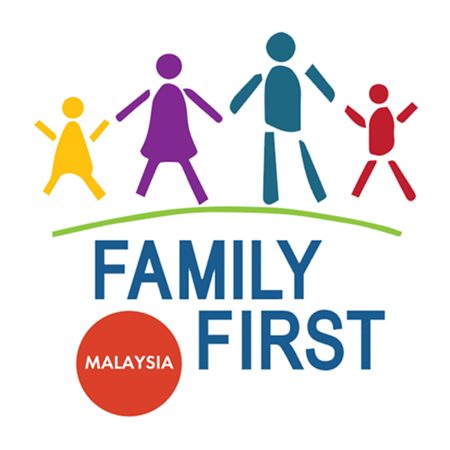
“It’s surprising how little we may know ourselves until we take the time to learn about ourselves”
I used to think I was an extroverted Sanguine (think “Tigger” in Winnie the Pooh). After all, I had no problems being outgoing and sociable in a big group setting. I had been a leader at school and of various youth groups. I thrived in the attention I received. So picture this scenario:
I was attending a youth camp at the end of high school. At 17, everyone wanted to be in the cool group with the popular, outgoing kids. We just did a personality test as part of the camp, and all the extroverted Sanguines were giving each other high-fives and gathering together to take wefies as a group, because that was what Sanguines did. And there I was, feeling left out as I sat among a smaller and quieter bunch of kids, starring disbelievingly at my personality test scores, which spelled out clearly that I was not an extroverted Sanguine, as I had formerly thought, but an introverted Phlegmatic! All of a sudden, I was no longer “Tigger the happy Sanguine” but “Piglet the indecisive Phlegmatic”… “This can’t possibly be right!” I remember muttering to myself.
It was an identity crisis moment for me. I was truly shaken. All those years thinking I was an extrovert, and now realising I was under an illusion about who I was, just because my title as a leader made me think so. Thinking back, I can see other times I had masked my true self behind the façade of being “busy”. If a friend asked, “How are you?”, my automatic response would be, “So busy!” I was more concerned with how other people saw me and what they thought of me. I had a reputation to uphold. No need to dig deeper and examine my vulnerabilities. Placing my self-worth on being busy.
In today’s fast paced world, it is so easy to detach ourselves from other fellow human beings or even from who we really are as individuals. Busyness and the compulsion for success can cloud our sense of identity, just like it did to my younger self. We place our self worth on our titles, our job and our connection with people of rank in society. “What do you do?” becomes our default question in any new conversation. In the process, we avoid delving deeper to discover who we really are, who we were created to be.
So how do we get past the superficialities and find authenticity in our busy and often impersonal urban world? Here are some lessons I have learned along the way:
1. LEARN ABOUT YOURSELF
In order to have authentic relationships, we need to first be real with ourselves. It’s surprising how little we may know ourselves until we take the time to learn about ourselves
A good place to start is to do a personality test. If you have never done one, I’d highly recommend it. Personality tests are not meant to box us in, but they can help us understand ourselves better, and in turn help us know how we can succeed in relating with those around us.
Here are two good (and free!) personality tests worth checking out:
DISC Personality Test: https://discpersonalitytesting.com/free-disc-test/
MBTI Personality Test: https://www.16personalities.com/
Having done several personality tests since that “camp moment” at the age of 17, I can confirm that I am more of an introvert than an extrovert. While I am comfortable in big groups and approaching new people, I see these as skills I have learned along the way. The main difference is what refreshes and recharges me. I find that I get recharged more when I have a meaningful conversation with a close friend than in a big group setting.
2. MAKE TIME TO REFLECT
Carving time out of our hectic schedule to reflect is a good practice to help us see the bigger picture and reconnect with what is important in life. We can reflect on a current situation and why we are feeling the way we do, find time to be thankful to God for the ways He has blessed us, cast our eyes into the future and what our goals and aspirations are.
For myself, I reflect best with pen and paper (journaling). Those who are more active, like my husband, prefer to go for a run, a long bike ride or hike up a mountain. I also know of some people who go on silent retreats- no cell phones and no distractions.
Reflecting helps us gain perspective – of ourselves, our relationships and our circumstances.
3. FIND A SAFE COMMUNITY
It is in a safe and authentic community that we discover our true selves; and it is when we are comfortable with our true selves that we can contribute meaningfully to the relationships around us.
Such a community might start off as a group of people who share the same interests as you, a church small group, or people you work with. We don’t have to limit ourselves to just one group.
I see a safe community as one that shows acceptance and grace. A safe community doesn’t expect us to be perfect. It allows us to make mistakes and still graciously accepts us for who we are. At the same time, a safe community challenges us to grow and develop as people. Proverbs 27:17 says, “As iron sharpens iron, so one person sharpens another”.
Building authentic relationships take effort and time. True friendships are often born out of adversity and shared experiences. Creating a safe community takes commitment and perseverance from all parties involved. It requires us to be vulnerable and it also challenges us to be accepting of others. It may take a few tries to find the right community fit. But no experience is in vain in this pursuit for a safe community, for we grow as people along the way.
4. CONNECT WITH OUR CREATOR
We have all been intricately designed. A masterpiece created for a purpose. Our identity will never be complete until we connect with our Creator. We don’t have to rely on titles and rank to prop us up. We don’t need to get stuck in a meaningless rat race for success. We can be secure in knowing that we are loved by the One who created us, that we are forgiven from all our past mistakes, and we can live out our lives loving our Creator and the people around us.
As we make time to learn about ourselves and reflect, as we connect authentically with a safe community and our Creator, we find that there is no more need to pretend or hide behind a mask. Rather, as we be real with ourselves, we become a better sibling, friend, parent, spouse or colleague to the those in our lives.
About the Author: Jess Chan is married with two young daughters. Aside from being full-time “minister of home affairs” and “transport minister” to her little family, she also serves as the Field Administrator for World Outreach International, a Christian mission organisation that has a presence in 70 countries. Jess and her family moved back to Malaysia in 2017, after spending 10 years in New Zealand and 6 years in Thailand.
Reposted from old website 3 March 2019
